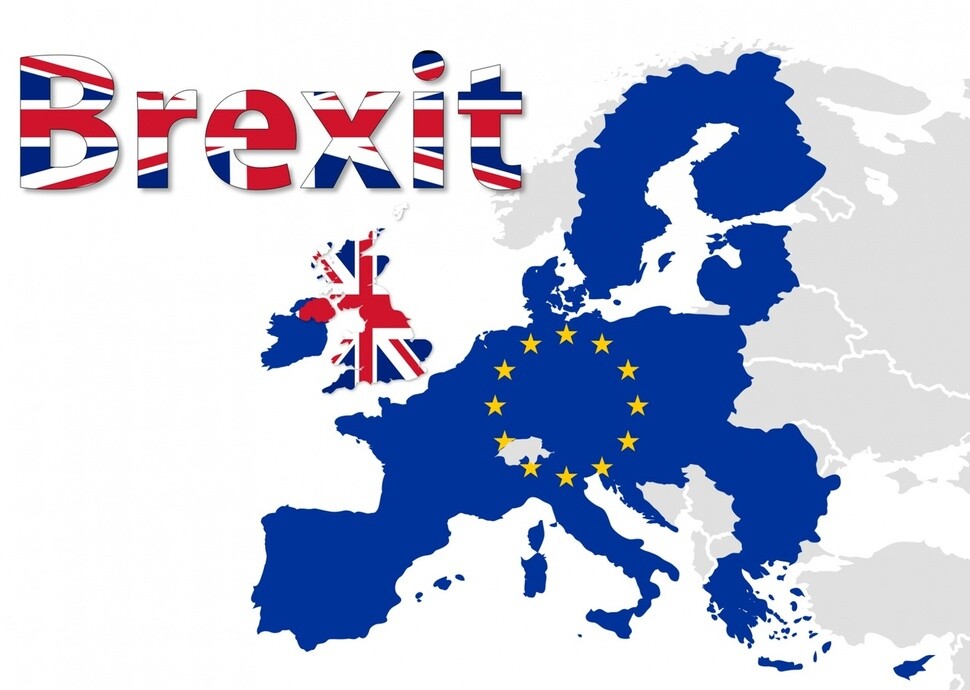hankyoreh
Links to other country sites 다른 나라 사이트 링크
South Korean companies face threats and opportunities from Brexit

Experts are warning that a Brexit could have a negative impact on South Korean businesses in general. But if the real economies of the world’s countries are not reeling from the shock of the United Kingdom’s departure from the European Union, any calculation of benefits and losses for major export items becomes somewhat complicated. Not only are exporting businesses expected to continue benefiting from a weak won, but the collapse of the single market represented by the UK and EU offers an opportunity alongside the threat it poses.
Among the members of the EU, the countries with the most active trade relationships with the UK - the second largest economy in the region after Germany - are Germany, France, the Netherlands, and Belgium. The tariff barriers that arise between those countries and the UK after the Brexit could end up working to South Korean companies‘ advantage.
“In the absence of any new trade agreement reached between the EU and UK, South Korea could achieve price competitiveness in exports for cars and parts like turbo engines through its current level of trade agreement with the UK,” predicted Korea International Trade Association senior researcher Ryu Seung-min.
South Korean businesses to recalculate UK and EU strategiesThe new environment is an unfavorable one for US and Japanese companies with production bases in the UK. Unless a new trade agreement is signed between the EU and UK, automakers Ford, Toyota, and Honda will have to be pay tariffs on exports of British-made cars to the European continent. In contrast, Hyundai Motor has a production base in the Czech Republic, and Kia Motors in Slovakia. Both are EU member countries, which could mean a more advantageous position for Hyundai and Kia than for companies with production bases in the UK.
In addition to cars, other South Korean exports to the UK include ships, wireless telephones, semiconductors, jet fuel, car parts, heavy equipment for construction, and tires. Facing competitors in the UK market that do not have FTAs with the EU - including the US, China, and Taiwan - South Korean businesses are positioned for a tough blow as the signing of a new FTA with the UK drags on and the benefits of customs waivers disappear. Products such as jet fuel, car parts, fibers, and petrochemicals are expected to be hit especially hard.
There are currently around 100 South Korean businesses in the UK. While no major immediate impact is expected, they may have to reevaluate their European market strategies to face the possibility of a recession for the British economy and a chain reaction of plunging demand in the EU. The already troubled shipping and shipbuilding industries are trembling over a possible drop in world trade that leads to reduced shipping volumes and shipbuilding orders.
Meanwhile, the South Korean Ministry of Trade, Industry and Energy announced on June 26 that it will consider signing an FTA with the UK to avoid the possibility of the UK being excluded from the scope of the South Korea-EU FTA as a result of Brexit negotiations - a process that is currently expected to take two or more years.
By Hong Dae-seon, staff reporter
Please direct questions or comments to [english@hani.co.kr]

Editorial・opinion
![[Editorial] Does Yoon think the Korean public is wrong? [Editorial] Does Yoon think the Korean public is wrong?](https://flexible.img.hani.co.kr/flexible/normal/500/300/imgdb/original/2024/0417/8517133419684774.jpg) [Editorial] Does Yoon think the Korean public is wrong?
[Editorial] Does Yoon think the Korean public is wrong?![[Editorial] As it bolsters its alliance with US, Japan must be accountable for past [Editorial] As it bolsters its alliance with US, Japan must be accountable for past](https://flexible.img.hani.co.kr/flexible/normal/500/300/imgdb/original/2024/0417/6817133413968321.jpg) [Editorial] As it bolsters its alliance with US, Japan must be accountable for past
[Editorial] As it bolsters its alliance with US, Japan must be accountable for past- [Guest essay] Amending the Constitution is Yoon’s key to leaving office in public’s good graces
- [Editorial] 10 years on, lessons of Sewol tragedy must never be forgotten
- [Column] A death blow to Korea’s prosecutor politics
- [Correspondent’s column] The US and the end of Japanese pacifism
- [Guest essay] How Korea turned its trainee doctors into monsters
- [Guest essay] As someone who helped forge Seoul-Moscow ties, their status today troubles me
- [Editorial] Koreans sent a loud and clear message to Yoon
- [Column] In Korea’s midterm elections, it’s time for accountability
Most viewed articles
- 1[Column] The clock is ticking for Korea’s first lady
- 2[News analysis] After elections, prosecutorial reform will likely make legislative agenda
- 3Samsung barricades office as unionized workers strike for better conditions
- 4[Editorial] Does Yoon think the Korean public is wrong?
- 5‘Right direction’: After judgment day from voters, Yoon shrugs off calls for change
- 6Korea, Japan jointly vow response to FX volatility as currencies tumble
- 7[Editorial] When the choice is kids or career, Korea will never overcome birth rate woes
- 8Why Israel isn’t hitting Iran with immediate retaliation
- 9S. Korea, Japan reaffirm commitment to strengthening trilateral ties with US
- 10Japan officially says compensation of Korean forced laborers isn’t its responsibility